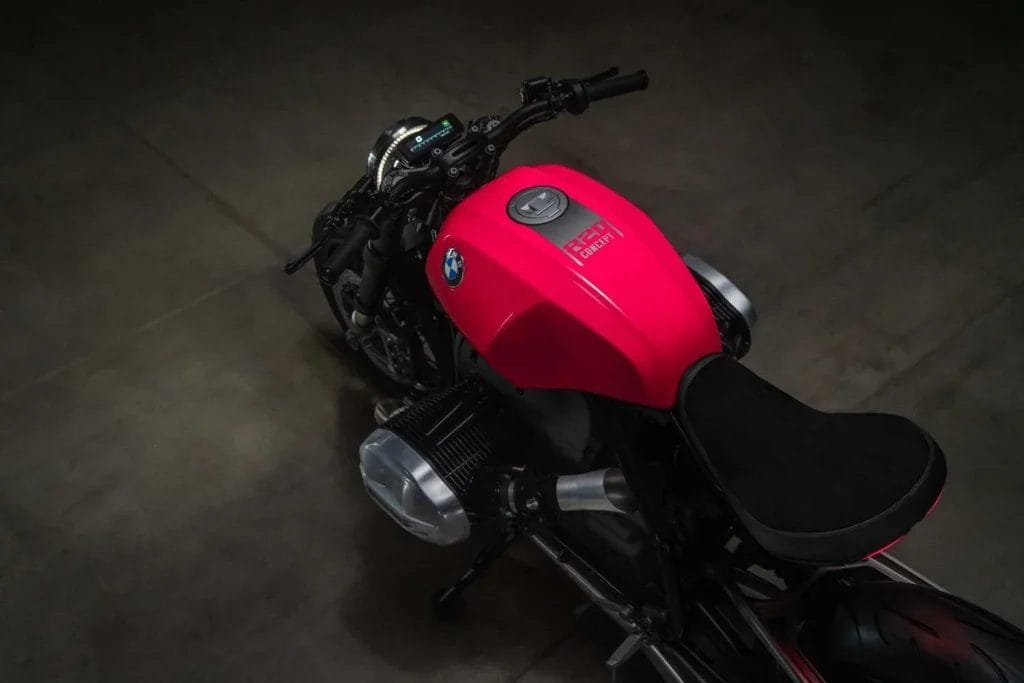Powerful looks and a gentleman’s casual style in a classic design characterize the BMW R20, the new concept presented by BMW Motorrad at the Concorso d’Eleganza in Villa d’Este.
Focused on the Big Boxer engine, the clearly visible fuel tank looks like a sculpture, the rear end is reduced to the essentials to emphasize the bike’s simple lines and power.
The double cradle frame is made from chrome-molybdenum steel tubes to form the backbone of the bike. With a 17×6.25-inch black disc wheel at the rear, on which a 200/55 size tire is mounted, and a 17-inch wheel with black spokes and 120/70 size tire at the front, the BMW R20 concept combines tradition and modernity.


The tried and tested BMW Paralever has been realized in a new two-arm variant, in which the swingarm is made of chrome-molybdenum steel and the Paralever shock absorber is made of aluminium.
The kinematics have been designed to fully balance the drive torque. The two milled aluminum rear axle supports are another high-quality detail. The exposed drive shaft, conceptually adopted from the R18 – the visual highlight of the well-known R 18 models – has been shortened to be integrated into the roadster’s architecture. As suspension elements, fully adjustable Öhlins Blackline components operate at the front and rear. The basic vehicle geometry features a steering angle of 62.5° and a wheelbase of 1550 mm. Radially mounted ISR brake calipers at the front and rear handle deceleration, with six pistons at the front and four pistons per caliper at the rear.
In addition, the 2-into-2 exhaust system provides the distinctive sound character and perfectly complements the design.

The centerpiece of the BMW R20 concept remains the air- and oil-cooled Big Boxer engine, now with a displacement of 2,000 cc. New cylinder head covers, a new belt cover and a new oil cooler have been developed for the concept bike, so that the oil pipes can be mounted partially concealed: The eye follows the path of the air as it flows through the open intake funnels into the throttle bodies and cylinders, before escaping through the open exhaust system and megaphone-designed tailpipes, creating the typical Big Boxer sound.
Source:https://www.moto.it







